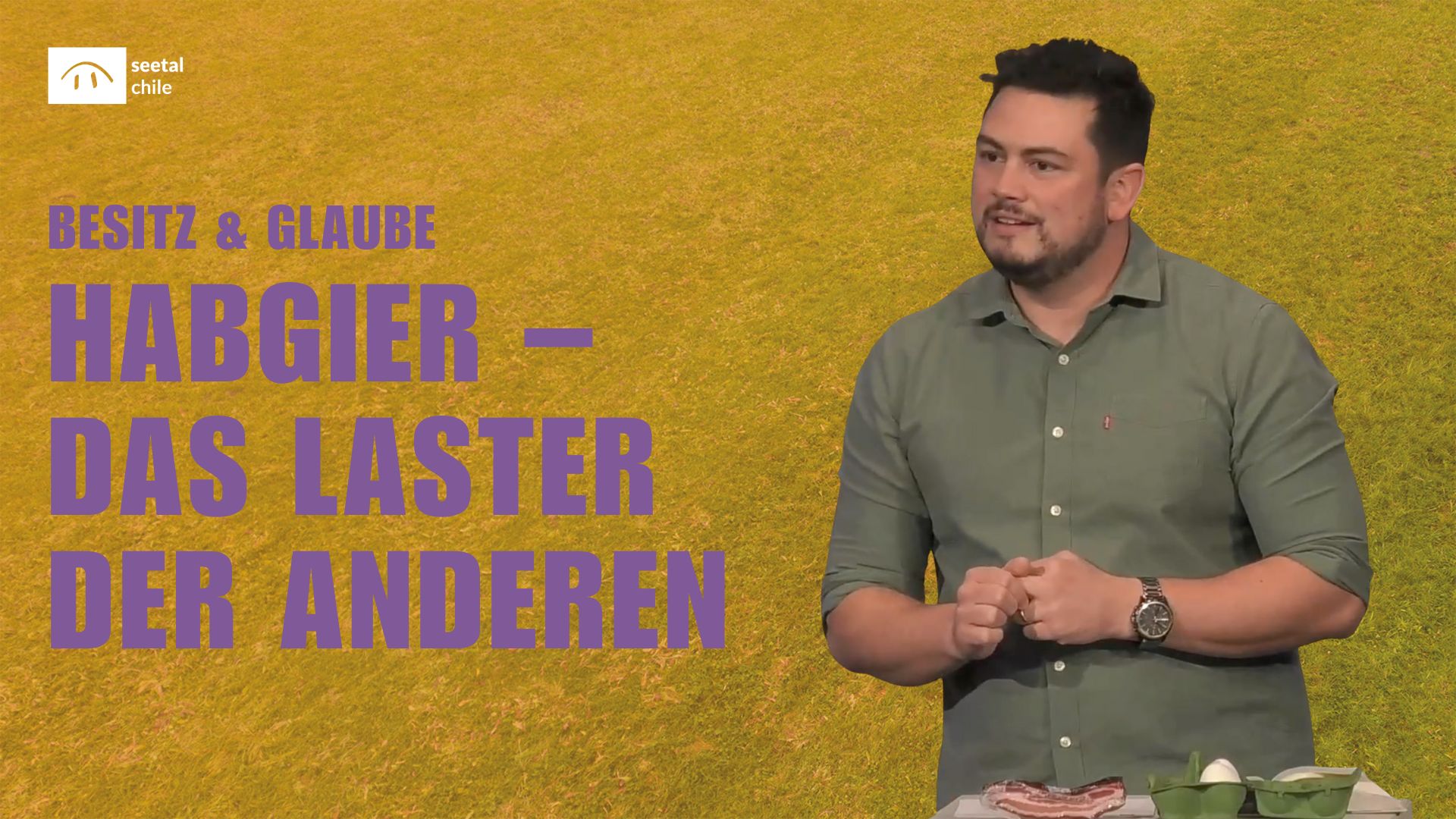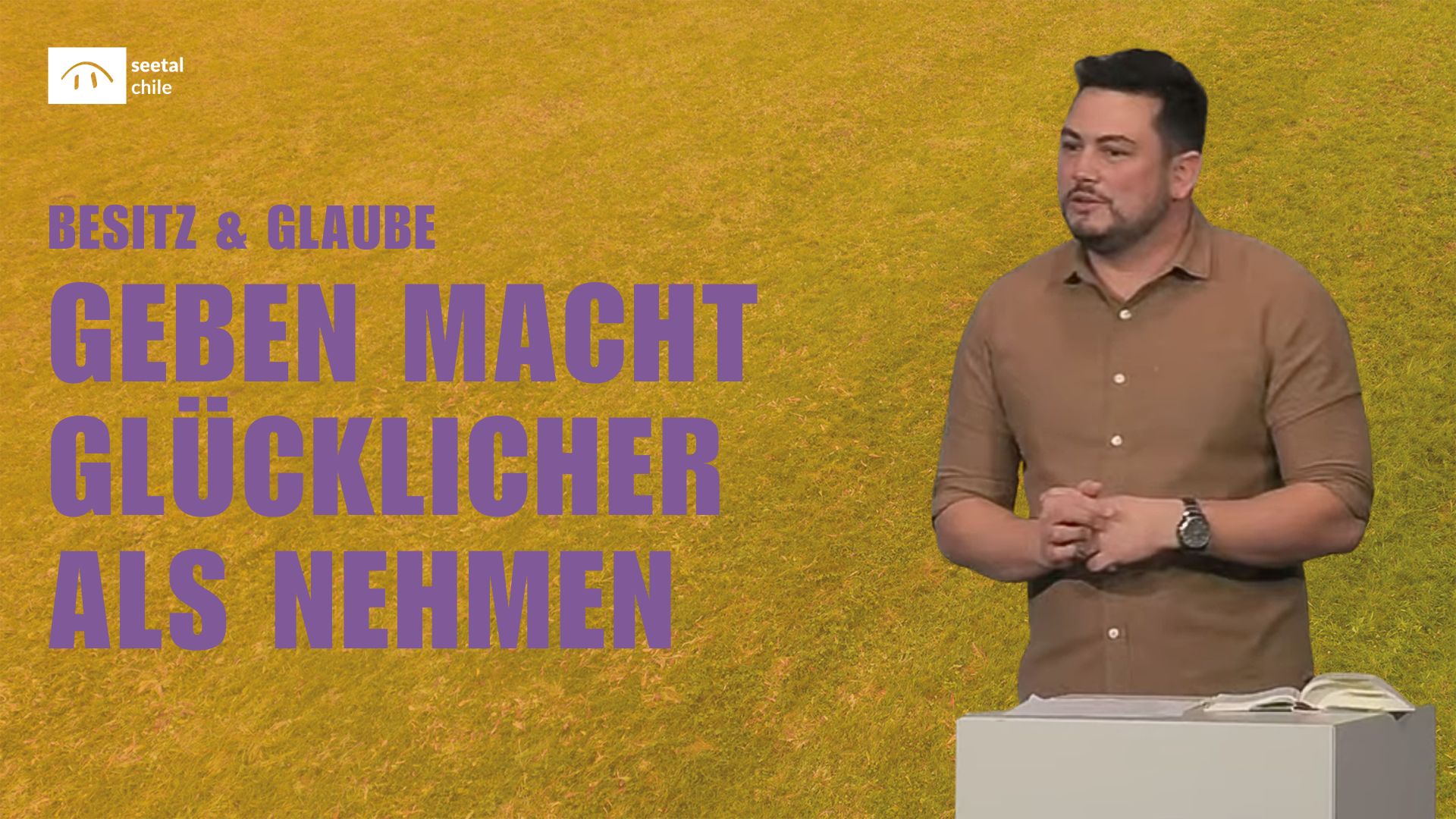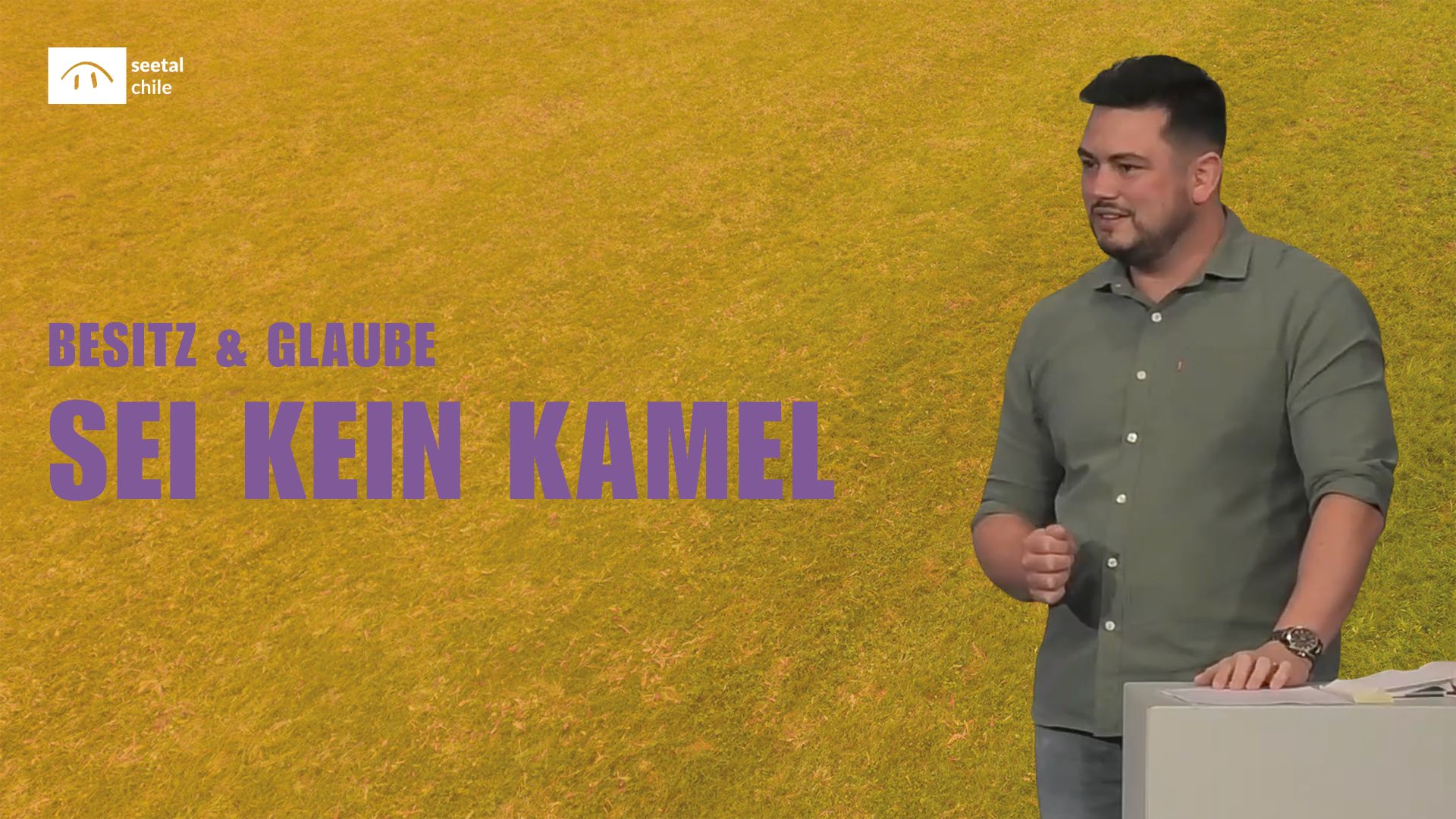Joy that nobody blows out
Series: EIFACH muetig – with Jesus as a role model | Bible text: 1 Thessalonians 5:16; Revelation 21:1–7
Joy is often associated with moments of happiness, but true joy goes deeper – it is an attitude of the heart that can accompany us even in difficult times. In the Bible, joy is described as a gift from God that comes into our lives through the Holy Spirit. The place of perfect joy is the new heaven and the new earth. The anticipation of this will give our life in this world meaning, happiness and fulfilment.
The song «No one blows out the Christmas cheer» is a real catchy tune. Our joy comes from various sources: closeness and connection with other people, achieving goals and successes, nature and our surroundings, creativity and art, humour and laughter, health and physical activity, etc. One of the greatest joys for me is when I have climbed a mountain as a couple or in a group on my bike and am now sitting comfortably in a mountain restaurant with a magnificent panorama over an alpine lunch. The problem with all these sources is that they can run dry or even produce bitter water such as conflict, failure, sadness or illness.
The most famous church founder of the first century, St Paul, demands quite boldly: «Rejoice, whatever happens!» (1 Thessalonians 5:16 New Testament). Obviously, there must be a joy that is independent of moments of happiness and therefore cannot be extinguished.
Joy is a gift
Recently, I realised that I had lost some of the joy of my job and had to make sure that I didn’t just sit out my last few years at work. My wife asked me in astonishment whether I had a depressive mood. It’s like this: If there is a lack of joy in an activity or in life in general, it becomes tedious. At the Viva Church conference at the beginning of March on the topic of «Daily Spirit», I received important impulses on how I can find true joy again. In this sermon, I process my insights into how joy can return, which I have already experienced.
The key lies in the Greek word for «joy», which is chara means. This term is derived from charis (grace, gift). Joy in the Bible is therefore the result of God’s grace. This kind of joy is not merely a reaction to external circumstances, but a joy that arises from a relationship with God and receiving his grace. It is closely linked to the experience of God’s love and his goodness.
King David must have known this connection 3000 years ago. He says: «You will show me the way to life and give me the joy of your presence. Eternal happiness comes to me from your hand» (Psalm 16:11 NLB). The joy lies in the presence of God himself and not in the fact that God gives favourable circumstances. Assaf, another psalmist, expresses the same point somewhat differently: «But this is my joy, that I cleave unto God, and put my trust in the LORD God, that I may declare all thy works» (Psalm 73:28 LUT). The joy lies in an open-ended focus on God. It is a joy to look to God and expect everything from Him. Perhaps this will result in many sunny days filled with strength, wealth and health. But perhaps difficult days with threats, illnesses and conflicts will also follow. Joy enters where a person does not aim for good fortune and the experience of prosperity and health, but for communion with God.
Some people think that they have a bad hand when it comes to joy, as they tend to have a heavy disposition and are always caught up in depressive moods. They say: «If I had as optimistic and cheerful a view of the world as my colleague, things would be different!» Based on the biblical findings, however, I am certain that the joy I am talking about today is independent of our personality.
Rejoicing is a decision
We are not simply at the mercy of joy, in the sense that one time it is there and another time it is not. It is often associated with moments of happiness, but true joy goes deeper – it is an attitude of the heart that can accompany us even in difficult times. So joy is not simply a euphoric feeling or the result of our fate or our personality, otherwise Paul could not claim it: «Rejoice in the Lord. I emphasise it once again: Rejoice!» (Philippians 4:4 NLB). This imperative makes it clear that we share responsibility for ensuring that our lives radiate joy.
What Paul writes just a few sentences later is impressive. He allows himself to look deep into his soul: «[…] I have learnt to be content with what I have. Whether I have a little or a lot, I have learnt to cope with every situation: I can have a full stomach or an empty stomach, experience abundance or suffer lack. Because everything is possible for me through the one who fills me with strength» (Philippians 4:11–13 NLB). Obviously, we are talking here about a joy that is an attitude of the heart.
How can a person fulfil the invitation to rejoice, especially in difficult moments? By drawing grace from God’s abundance every day. The way to do this is through the fulfilment of the Spirit of God who lives in a follower of Jesus. For it says: «If, on the other hand, the Holy Spirit rules our lives, he will cause completely different fruit to grow in us: Love, Joypeace, patience, kindness, goodness, faithfulness, gentleness and self-control» (Galatians 5:22f NLB). Joy grows in our lives when the spirit of God is given much room and dominates our lives. Where the Spirit of God is in charge, the kingdom of God spreads: «For in the kingdom of God, it is not what you eat or drink that counts, but that you live a life of righteousness and peace and in the Joy in the Holy Spirit» (Romans 14:17 NLB). The characteristics of God’s kingdom go deeper than satisfying our physical needs.
Our responsibility lies in drawing grace upon grace from God’s abundance (cf. John 1:16). In concrete terms, this means that we give the Spirit of God a lot of space in our lives so that He can dominate it. We do this by prioritising communion with the heavenly Father in our everyday lives.
Jesus has a great concern for his followers to experience much joy: «I tell you this so that my joy may fill you. Yes, your joy shall be complete!» (John 15:11 NLB). It is symptomatic that in John 15 Jesus talks about the Remaining in Him and Er-in-Uns speaks.
Joy is fuelled by the future
The new heaven and the new earth are presented to us in the Bible as the place of unique joy and bliss. In some places, the wedding, the occasion that is generally regarded as the greatest day of joy, is used as a strong image for this. This is already expressed in prophetic texts of the Old Testament: «Yes, those who have been redeemed by the LORD will return to Jerusalem rejoicing and her face will radiate eternal joy. Happiness and joy will come to them. Sorrow and sighing will depart» (Isaiah 51:11 NLB).
In my last sermon (30 March 2025), I shared how the employee team gifted me with Canadian products a few months before my timeout. This gave me a taste of the special time and a growing sense of anticipation. The Spirit of God has precisely this task in our life in this world; to give us a foretaste and to promote anticipation. And again we are with the Spirit of God, to whose fruit the ingredient Joy belongs.
In 2024, Lukas Z., father of three sons, died of a brain tumour at the age of 44. Already marked by his illness, but still just able to cope, he travelled to the Maldives with his wife for one last holiday. There he filmed his own farewell speech, which was only to be published after his death and the funeral service. When I heard it, I was deeply impressed by the idea on the one hand, but above all by the gratitude and huge anticipation of glory with God that he expresses in the speech. We will now watch a summary of this video.
Divine joy, brought about by the Holy Spirit, even overcomes our fear of death and can unfold its full power in the face of approaching death. What a powerful testimony to the living God when a person can approach their final hour with such joy. Just this week I was able to experience this myself at the deathbed of a member of our church.
Metaphorically speaking, followers of Jesus are waiting for the time when the bridegroom Jesus reveals himself and the wedding can take place. We like to associate waiting with tedium, a long wait and tediousness. Waiting for Jesus, on the other hand, has the potential for a time of exuberant (pre)joy. Followers of Jesus who die before Jesus reveals his new creation will go to paradise (Luke 23:43). Paradise is a place of bliss and joy. At some point, the day will come when Jesus reveals himself as the bridegroom and the wedding will take place. Then the followers of Jesus will receive a new body and live face to face with Jesus in the New Jerusalem. It is the place where the new heaven and the new earth intertwine as in a temple. The divine reality will reveal itself and merge with the earthly reality. It will be a celebration par excellence.
A wedding is a happy day – quite a few people describe it as the best day of their lives. Last year we celebrated a wedding in our family. The anticipation and joy on the day itself were huge. Referring to the new creation, the Bible says: «Let us shout for joy and give him the honour, for now the marriage of the Lamb is being celebrated! His bride has made herself ready for the feast; she was allowed to clothe herself in pure, radiant white linen» (Revelation 19:7f New Testament). People who have been denied a wedding in this world may also take part in this wedding. The criterion for participation is the wearing of a wedding garment (Matthew 22:11ff). This is given to a person on the day he «clears the decks» with Jesus and puts Him at the top of his list of priorities. You can get one of these dresses today!
Possible questions for the small groups
Read the Bible text: Luke 15:3–10
- What is the reason for joy in the Bible text above?
- How do you see the connection between fate and joy?
- What does it mean that the word chara (joy) has the same root as charis (gift of grace)?
- How can we fulfil Paul’s call to «Rejoice»? What is our responsibility in experiencing joy?
- Why can a person rejoice on the final journey? Are you also looking forward to glory with God? What is preventing you from doing so?




